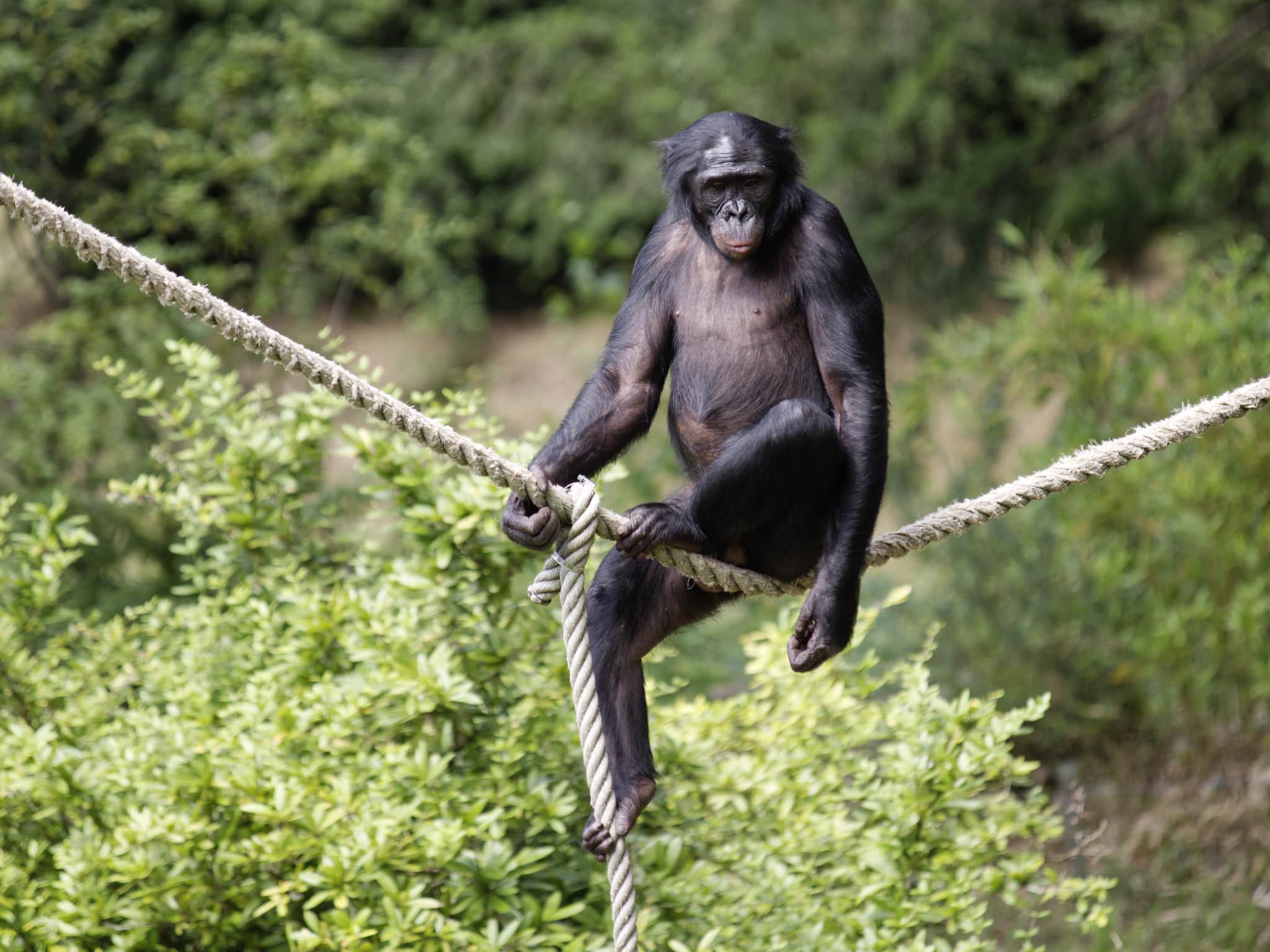

New research from Durham University in the United Kingdom shows that chimpanzees and bonobos are just as capable of showing empathy as humans.
In a study published in Evolution and Human Behavior, scientists observed 90 sanctuary-living apes to understand how often they comforted others during stressful moments. The findings challenge long-standing views that bonobos are naturally more caring than chimpanzees.
Researchers studied 40 bonobos at the Lola ya Bonobo sanctuary in the Democratic Republic of Congo and 50 chimpanzees at the Chimfunshi Wildlife Orphanage in Zambia. Over 1,400 hours of observation, they focused on how each ape reacted when another experienced distress, such as after a fight.
The study revealed that bonobos and chimpanzees both showed comforting behaviors at similar rates. Actions such as hugging, holding hands, and gentle touching were common, mirroring how humans often console one another.
Research leader Dr. Jake Brooker, from Durham University’s Department of Psychology, said the results offer a new perspective on ape empathy.
“For a long time, bonobos have been thought of as the more empathic ape, while chimpanzees are typically spoken about as the violent, despotic ape,” Brooker said. “However, we found that chimpanzees are just as likely to console one another as bonobos.”
The team found that younger apes were more likely to offer and receive comfort than older ones. Younger individual bonobos stood out for their consoling behavior. In chimpanzees, young males and close companions were the most frequent sources of support.
The study also highlighted that empathy varies more between individuals than between species. Brooker said, much like humans, apes’ ability to show care depends on the individual, the social group, and the environment around them.
Professor Zanna Clay, senior author of the study from Durham University’s Department of Psychology, said the findings deepen our understanding of the roots of human empathy.
“Although empathy is very important for our own species, our findings show that empathic behaviors, like consolation, appear to be a common trait we also share with our two closest ape relatives,” Clay said.
She added that the similarities between chimpanzees and bonobos suggest that their last common ancestor with humans likely possessed these same emotional capacities.
The research team emphasized that gathering more data from different ape groups and environments could help explain how social behaviors like empathy evolved in humans. Future studies, particularly among wild ape populations, are expected to offer even greater insights.
